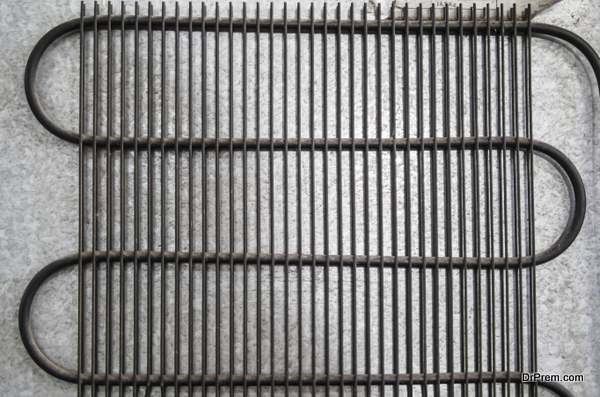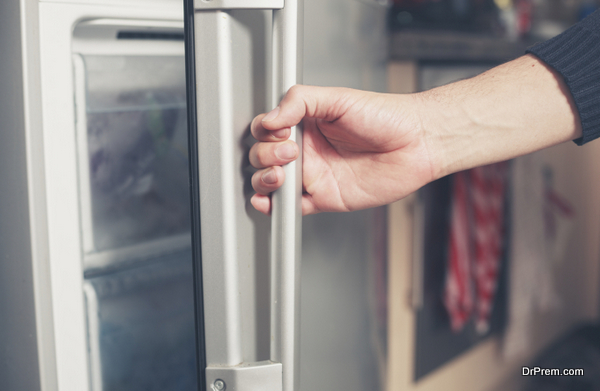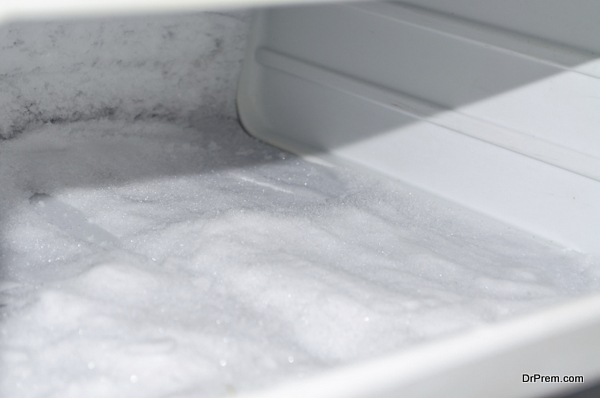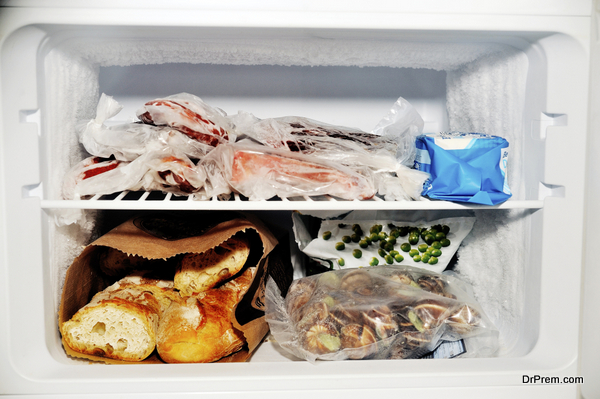Your refrigerator can be one of the power hogs in your home but you would not like this to happen, isn’t it? Of course, after all nobody wants energy wastage happening at home. If you are not sure whether your refrigerator is energy efficient or not, Dr Prem Jagyasi suggest some tips to save energy.
Keep condenser coils clean

The massive collection of wires and coils you usually see at the back or below a refrigerator, they are condenser coils. They are responsible for maintaining the air cool inside your refrigerator.
The cleaner the condenser coil, the better is the airflow in the refrigerator, and the more the dust and filth on the coil, the poorer is the quality of airflow. Clean coils consume lesser electricity to cool refrigerator, and filthy coils consume much more electricity to cool it. Therefore, ensure you keep the coil clean by cleaning it twice or thrice a year.
Consider door seals

Your refrigerator door seal should be airtight or else be ready to pay much more on your electricity bill. A simple test you can use to check whether the door is airtight or not. Place a sheet of paper between the door seal and the door while you close the door.
Now try to pull out the sheet of paper. If it comes out easily, you need to fix the door seal for the sake of energy efficiency, and if the paper does not come out easily, this means the door seal is airtight.
Monitor moisture

Some refrigerators come with a built-in automatic moisture control system that prevents accumulation of moisture on the cabinet. It does this without you installing any additional anti-sweat heater, which increases your refrigerator’s energy consumption by 5 to 10 percent. So look for models that serve the anti-moisture function without the anti-sweat heaters and save money and electricity altogether.
Defrost

Many people out of ignorance do not pay attention to the frost build up in their freezer. As the layer gets thicker, your refrigerator’s performance dips, as in it starts consuming a lot more energy than what is required. Do not let this happen and defrost your refrigerator every now and then.
Maintain the right temperature

Too warm temperature will spoil food stored in your refrigerator and too cold of it will increase you electricity bill and energy wastage. You need to create a balanced temperature that could serve your purpose right without wasting electricity. The standard energy efficient temperature that works well for almost every refrigerator is 5° for the freezer and the 37° to 40° for the fresh food section.
Place refrigerator away from the wall

If you are someone who likes to push refrigerator as close to the wall so you get to use some extra floor space, beware. This could be contributing a lot to your electricity every month by making your refrigerator an energy hog. Ensure its back is a few inches away from the wall if you want your refrigerator to use lesser electricity. An adequate distance from the wall can bring down its energy consumption by 40% or more.
Fill up the freezer

The freezer and the refrigerator have their own requirements and functions. To make your freezer work with utmost energy efficiency, you should fill it up completely. The more it is full, the better it performs. On the other hand, you should not pack the refrigerator tightly. It requires balanced air circulation to keep food fresh and cold, which would not be possible if the refrigerator is overflowing with the stored food items.
Refrigerator can be one of the biggest power hogs in households of their users do not take into consideration a few things. It depends upon the user to make it an energy efficient machine or an energy hog.



